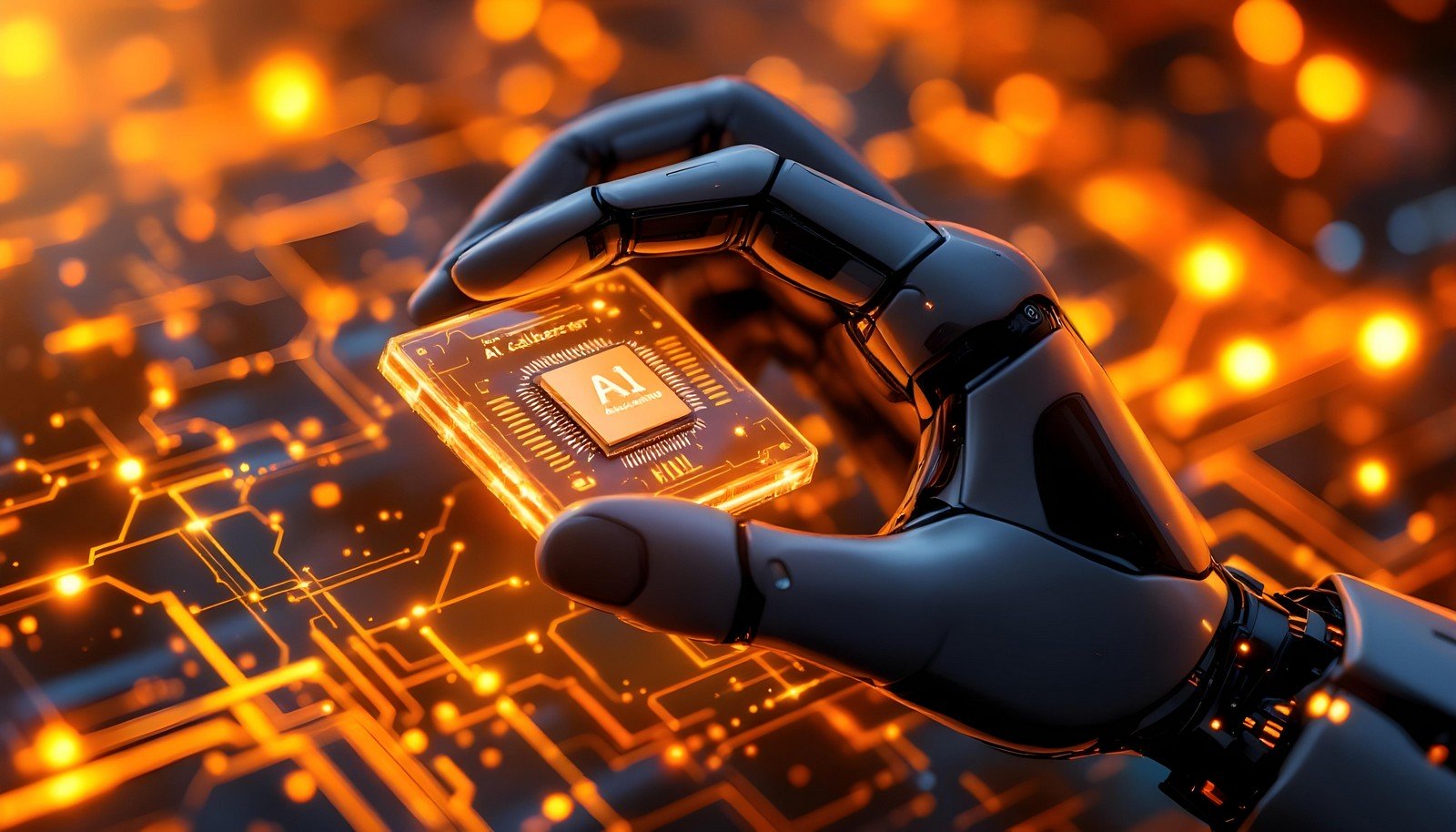AI Accelerator

Quick Navigation:
- AI Accelerator Definition
- AI Accelerator Explained Easy
- AI Accelerator Origin
- AI Accelerator Etymology
- AI Accelerator Usage Trends
- AI Accelerator Usage
- AI Accelerator Examples in Context
- AI Accelerator FAQ
- AI Accelerator Related Words
AI Accelerator Definition
An AI Accelerator is specialized hardware designed to enhance the speed and efficiency of artificial intelligence operations, particularly those involving machine learning and deep learning. These accelerators are engineered to manage complex computations with parallel processing, greatly improving the performance of tasks like neural network training, inference, and data analysis. AI Accelerators come in various forms, such as Graphics Processing Units (GPUs), Tensor Processing Units (TPUs), and custom Application-Specific Integrated Circuits (ASICs), each tailored to specific AI workloads. Their use optimizes power consumption and computational throughput, making them essential for modern AI development and deployment.
AI Accelerator Explained Easy
Imagine your computer is like a person doing homework. An AI Accelerator is like a super-smart robot helper that solves really hard math problems super fast so the person can finish their work quicker and easier. It makes learning and thinking tasks for computers way faster and better.
AI Accelerator Origin
AI Accelerators emerged as a response to the growing computational demands of AI algorithms in the early 2010s. As traditional CPUs struggled to keep pace with the needs of deep learning models, the industry sought more powerful, specialized solutions. Companies like NVIDIA pioneered the use of GPUs for deep learning, and other tech giants followed by developing custom hardware.
AI Accelerator Etymology
The term ‘accelerator’ stems from the concept of speeding up or enhancing the performance of processes. Combined with ‘AI,’ it reflects specialized technology designed to boost artificial intelligence operations.
AI Accelerator Usage Trends
AI Accelerators have seen a sharp rise in use over the past decade due to the proliferation of AI applications across industries. From autonomous vehicles and healthcare diagnostics to finance and real-time translation, these accelerators are indispensable for handling the data-intensive processes that modern AI entails. They are also increasingly used in consumer electronics, cloud computing, and enterprise-level data centers.
AI Accelerator Usage
- Formal/Technical Tagging:
- Hardware
- Computing
- Parallel Processing
- Machine Learning Optimization - Typical Collocations:
- AI accelerator chip
- GPU-based AI accelerator
- specialized AI accelerator
- deep learning accelerator
AI Accelerator Examples in Context
- “The new AI accelerator chip significantly improved the training time of our machine learning model, reducing it from days to just hours.”
- “By integrating an AI accelerator, the company achieved faster inference capabilities, allowing real-time image recognition.”
- “TPUs, a type of AI accelerator, were designed to handle Google's deep learning models more efficiently.”
AI Accelerator FAQ
- What is an AI Accelerator?
An AI Accelerator is specialized hardware that speeds up AI tasks like machine learning and deep learning. - How does an AI Accelerator work?
It processes many calculations at once using parallel computing, making complex AI computations faster and more efficient. - What types of AI Accelerators exist?
GPUs, TPUs, ASICs, and Field-Programmable Gate Arrays (FPGAs) are common types. - Who uses AI Accelerators?
Industries like tech, healthcare, automotive, and finance use them for AI-driven applications. - What is the difference between a CPU and an AI Accelerator?
A CPU handles general computing tasks, while an AI Accelerator is optimized for high-speed AI-specific operations. - Are AI Accelerators used in smartphones?
Yes, modern smartphones often include NPUs (Neural Processing Units), a type of AI Accelerator. - Why are AI Accelerators important?
They enable faster training and execution of AI models, making advanced AI applications feasible. - What is the benefit of using an AI Accelerator?
It enhances processing power, reduces latency, and improves energy efficiency in AI tasks. - Can AI Accelerators be used in gaming?
Yes, GPUs, a type of AI Accelerator, are widely used in gaming for better graphics and AI-driven features. - What companies develop AI Accelerators?
Major players include NVIDIA, Google, AMD, Intel, and startups focusing on AI hardware.
AI Accelerator Related Words
- Categories/Topics:
- Computing Hardware
- Artificial Intelligence
- Machine Learning - Word Families:
- Accelerator
- Processing Unit
- Neural Processor
Did you know?
In 2017, Google revealed its custom TPU (Tensor Processing Unit) which outperformed traditional GPUs and CPUs in AI tasks. This breakthrough marked a significant leap in the use of AI Accelerators, paving the way for more efficient, large-scale AI computations.
PicDictionary.com is an online dictionary in pictures. If you have questions or suggestions, please reach out to us on WhatsApp or Twitter.Authors | Arjun Vishnu | @ArjunAndVishnu

I am Vishnu. I like AI, Linux, Single Board Computers, and Cloud Computing. I create the web & video content, and I also write for popular websites.
My younger brother, Arjun handles image & video editing. Together, we run a YouTube Channel that's focused on reviewing gadgets and explaining technology.



Comments powered by CComment